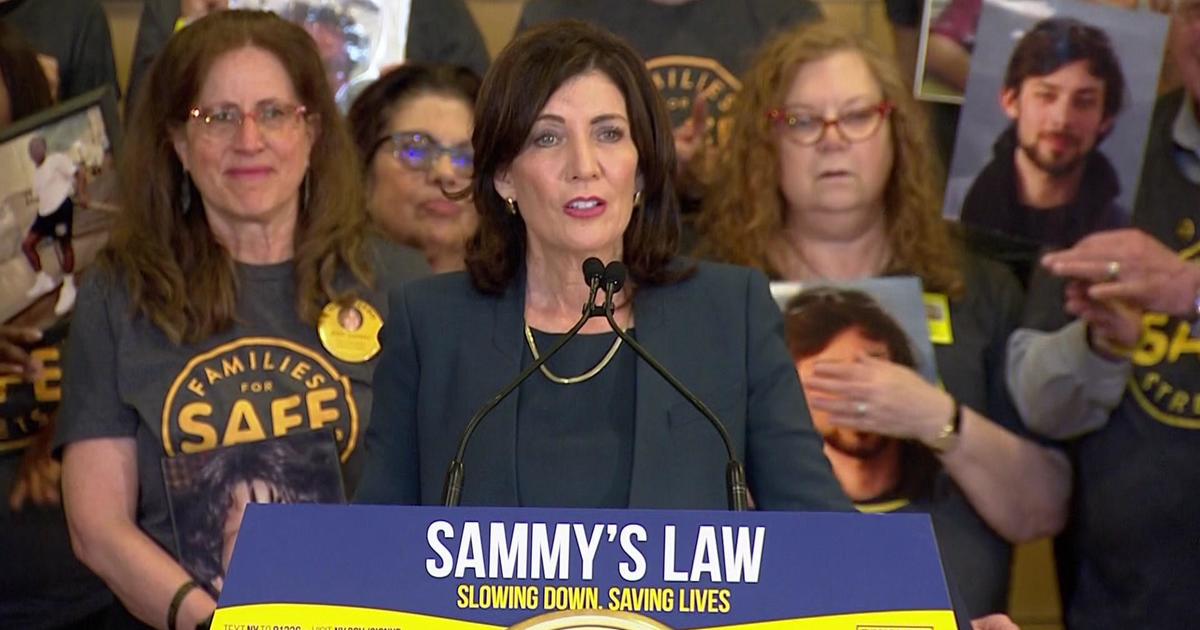Museum Of Chinese In America Documents Racism, Violence Against Asian Community During Coronavirus Pandemic
NEW YORK (CBSNewYork) -- The recent rise of violence targeting Asian communities is rooted in a long and painful past in America.
Until now, it's been widely omitted from history books, CBS2's Aundrea Cline-Thomas reported Thursday.
To understand the more recent attacks and racism targeting Asian communities, you first have to look back 150 years to when Chinese workers, the first large group of Asians, migrated to the U.S.
That's where the story starts at the Museum of Chinese in America, known as MOCA.
"They came to the West Coast, and fueled by the opportunity for the gold rush," said museum president Nancy Yao Maasbach.
The Chinese workforce grew as they met the demands to build the transcontinental railroad. But so did the terror they were subjected to.
"This is all the legislation against Chinese and Asian Americans in this county," Maasbach said.
From ceiling to floor, there's a list of state and federal laws that barred access and freedoms.
The Chinese Exclusion Act of 1882 that eventually made Chinese immigration illegal is among the most damaging. It was later extended to Hawaii and the Philippines.
"Chinese in America, who had citizenship during this period of time, were stripped of their citizenship," said Maasbach.
Citizenship eligibility was not restored until 1943, around the same time Japanese Americans were sent to internment camps.
There was another spike in violence and discrimination after 9/11.
Pop culture has reinforced stereotypes throughout history.
"We are plagued, plagued by the model minority myth, right, that we don't need help," said Jo-Ann Yoo, executive director of the Asian American Federation, which reported 500 hate incidents in New York since last year.
"We are Americans, and everybody says, 'Oh, but where are you from?'" Yoo said. "Why do you assume that I don't belong here?"
Many say former President Donald Trump incited those sentiments during his handling of the coronavirus pandemic. Trump called the virus "Kung Flu" at an event in June 2020.
MOCA is collecting artwork and stories documenting the Asian American experience, especially during the pandemic.
"Remember, record, respect. Because only when we can record history and we can remember that can we actually begin to respect one another," said Maasbach.
The museum is commemorating another chapter of a painful past.



